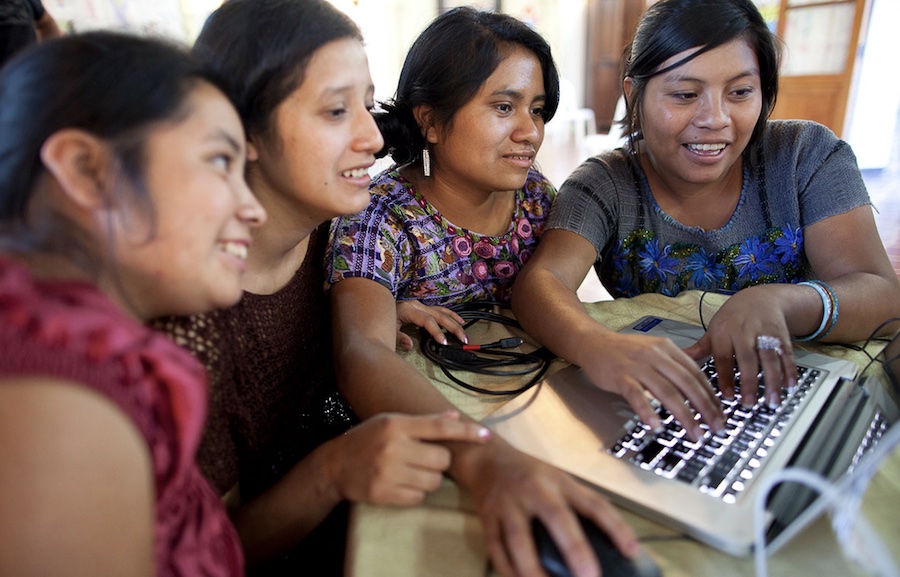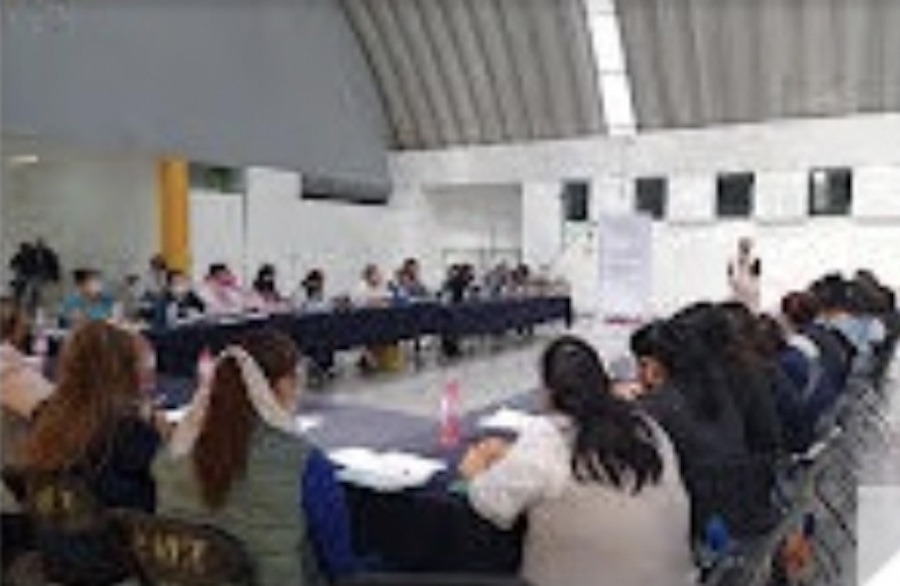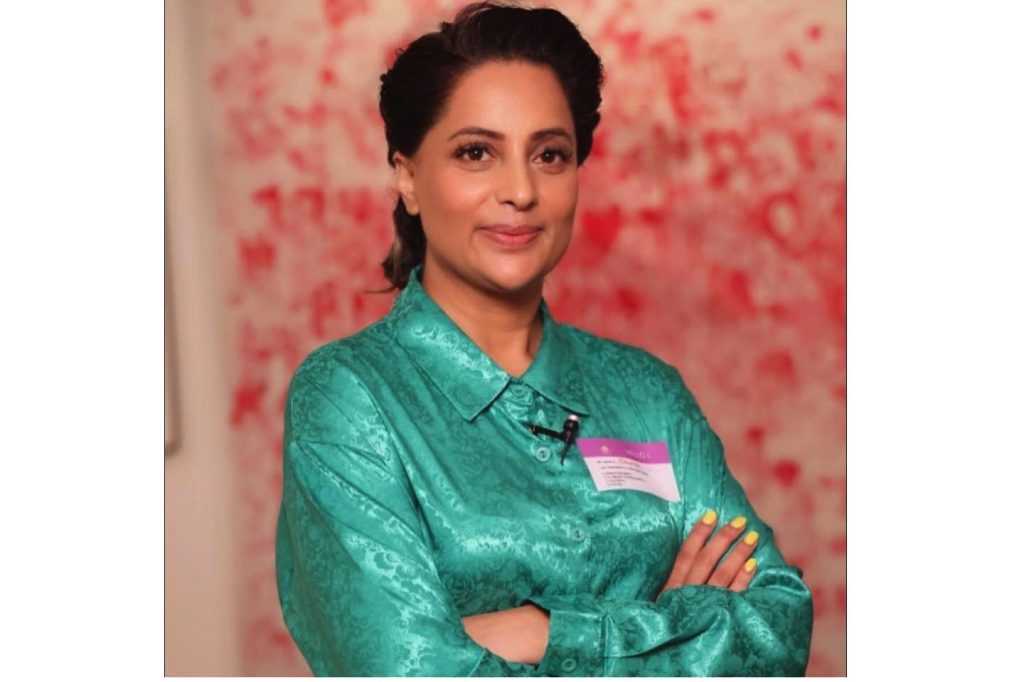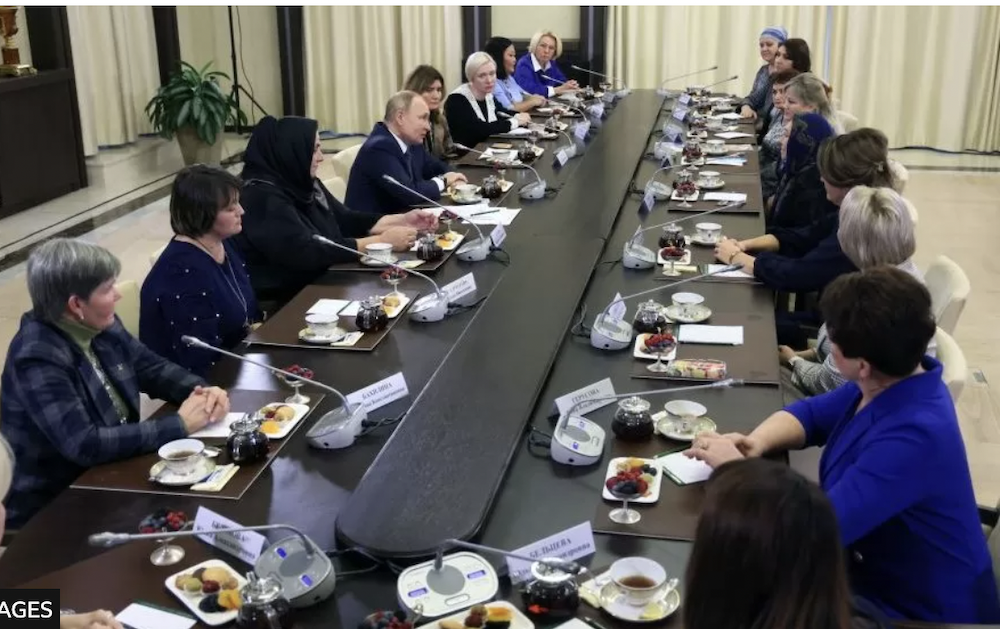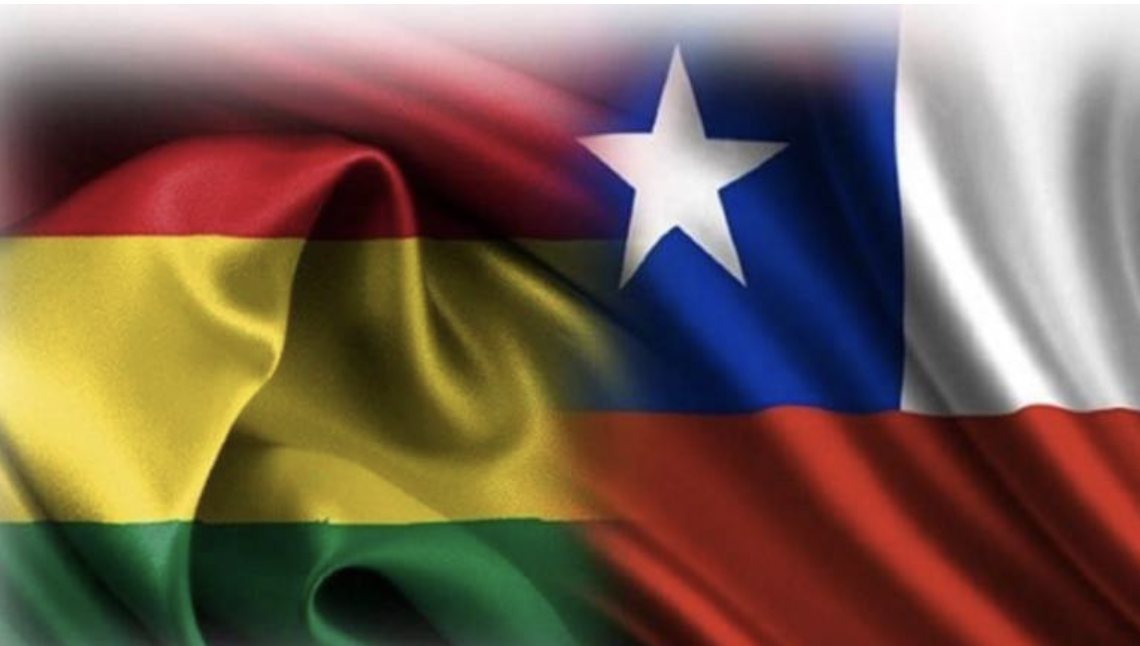. . WOMEN’S EQUALITY . .
An article from the Women’s International League for Peace and Freedom
What role does radio play in advancing social movements, including feminism and the peace movement? This World Radio Day, we’re exploring the answer to this question — and taking a look at how radio is used by WILPF members around the world today to broadcast messages of peace, justice, and equality for all.

Image credit: UN Photo/Michael Ali
From the time modern radio became popular as a means of broadcasting news and entertainment in the early 1920s, it has played an important role in disseminating messages of peace — including those shared by women.
In recognition of the unique relationship between radio and efforts for peace, this year’s World Radio Day theme is “Radio and Peace” — a reflection of the medium’s powerful contributions to peacebuilding, conflict prevention, knowledge sharing, democracy, and activism.
At WILPF, our movement has evolved alongside the advent of radio since our earliest days. Founded in 1915 in the midst of the First World War, generations of WILPF leaders and members across the globe have used radio as a critical tool for raising awareness of our cause and for bringing the voices of women to airwaves around the world.
Today, WILPF Sections and Groups continue to explore the possibilities of radio to advance movement building, dialogue, education, and action toward a future of feminist peace. Today, we’re glad and honoured to share just a few examples of how radio and peace go hand-in-hand through the work of WILPF members around the world.
WILPF Sections in Burundi, Cameroon, Côte d’Ivoire, Nigeria, and Togo
In Africa, radio is the primary mode of mass communication, with broad geographic reach and large audiences across all demographics.
During the COVID-19 pandemic, WILPF Sections throughout Africa made use of radio to share critical messages of peace and safety. WILPF Burundi, WILPF Côte d’Ivoire, and WILPF Togo broadcast important information about COVID-19 prevention techniques, while WILPF Nigeria raised awareness about the rise in instances of domestic violence during COVID-19 lockdowns. And in conjunction with the 33rd International Congress, WILPF Cameroon joined Radio Audace to talk about WILPF’s International Programme 2022-2025.
(Article continued in right column)
Do women have a special role to play in the peace movement?
How can peace be promoted by radio?
(Article continued from left column)
WILPF Argentina: Radio is essential for the people
In April 2021, WILPF Argentina — with support from WILPF — partnered together with other organisations working for peace to develop a radio programme called “I’ll Give You My Voice, Sister.”
Broadcast on Radio Rebelde 740AM, the radio spot has provided space for the partners to interview women politicians, popular militants, trade unionists, activists, deputies, senators, and other officials. Following a brief break, the half-hour show will resume this March with a broadcast every Wednesday morning.
“Our humble task is to make other voices heard, the voices of the protagonists, without filters that add more confusion to the existing ones,” says María de los Ángeles Pagano of WILPF Argentina. “No matter how small the audience is for a radio programme, it will always be heard. We know that it is very useful for our work with WILPF.”
WILPF Germany: A space for dialogue and knowledge sharing
On the first Monday of every other month, members of WILPF Germany can be heard on Radio Lora’s Radio International programme.
During the one-hour live broadcast, the team reports on their activities, shares their opinions on current events, discusses critical issues impacting women and peace, and educates listeners about all things WILPF: its history, its feminist approach to peace, its focus areas, and much more. Listen online now.
WILPF Italy: Making ourselves known to the public
For years, WILPF Italy has engaged with Radio Radicale to speak about human rights, nuclear disarmament, and the arms trade. In 2019, the radio station even recorded and broadcast an entire conference organised by the Section.
WILPF Italy has also partnered with local radio stations to record and broadcast live protests and sit-ins, co-organised with the “Disarmisti Esigenti”, or “Demanding Disarmament,” which are broadcast on Florence’s Nuova Resistenza radio.
“Undoubtedly, radio helps us make ourselves and our work known to the public,” says Patrizia Sterpetti of WILPF Italy.
From radio to podcasting: The future of listening
In recent years, podcasting has joined radio as an exciting new means of sharing news and stories, engaging in dialogue, and elevating voices through the power of audio.
At WILPF, we have leaned into this new mode of communication with the creation of a number of new podcasts, including Think & Resist, Caesura, and Political is Personal. Each takes a different approach to showcasing the work of the activists leading the feminist peace movement and shedding light on some of the most critical issues impacting peace and human security today.
